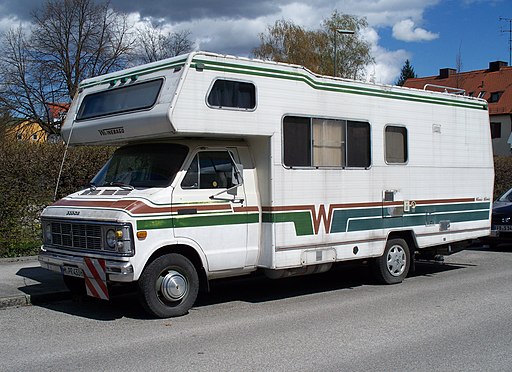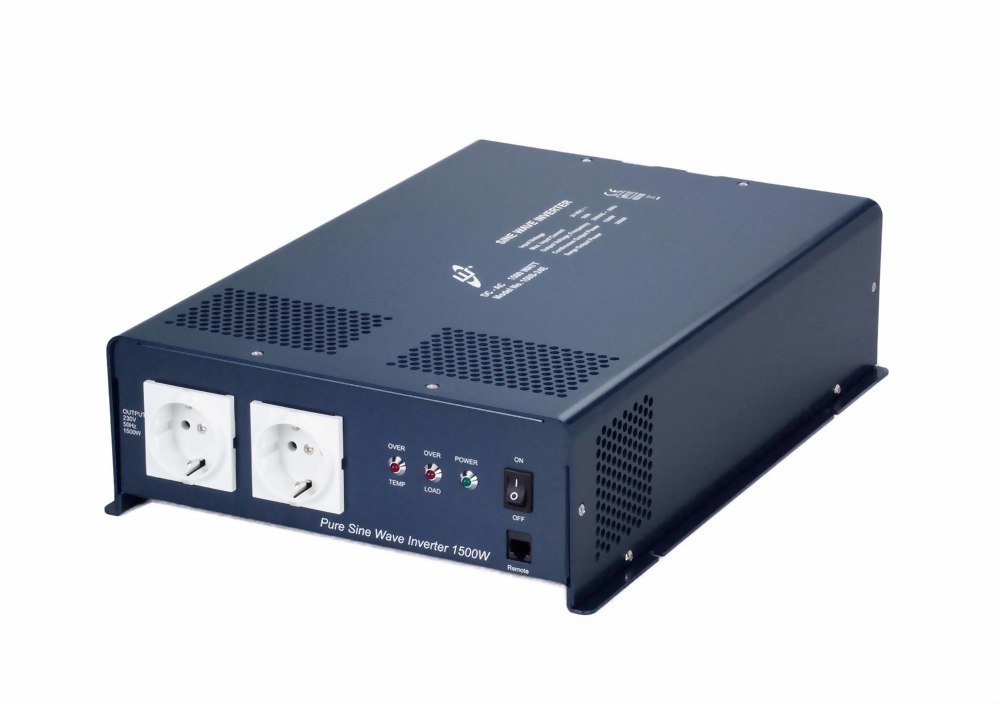5 Tips for Choosing the Right Recreational Vehicle Inverter
5 Tips for Choosing the Right Recreational Vehicle Inverter

A recreational vehicle (RV), also called a caravan, camping vehicle, is a van vehicle that has housing and living space inside. Nowadays, increasingly people choose to live in RVs. Even without living in an RV, camping is always a popular leisure activity. When camping far from the electrical grid, we use an RV inverter to transfer DC to AC. Choosing the right inverter is important. Sometimes, you may be far from the electrical grid, or your generator may break down. Additionally, camping life would be much more convenient. Having a suitable RV inverter is a must for your off-grid experience.
What to consider when selecting an RV inverter? As a leading manufacturer of pure sine wave inverters in Taiwan, Welltron has compiled a list of five tips to assist you in choosing the right RV inverter before you go camping or are like a caravan. We offer advice on the factors should consider when selecting.
What is an Inverter?
As mentioned above, an inverter is an electronic device transferring direct current (DC) to an alternating current (AC). AC power is the current electronic appliances used in our daily lives, such as lights, laptops, microwaves, air conditioners, heaters, refrigerators, televisions, etc. Continuously changing its direction between positive and negative values creates a wave-like pattern. The cost of changing the AC voltage is lower than changing the DC one. Thus, the power station generates high-voltage AC power and reduces its voltage in several stages to transmit it to factories, transportation, residential buildings, and commercial buildings. On the other hand, the DC maintains a one-directional flow.What is the DC power used for? It is stored in batteries in the automotive application. The power of solar panels is also generated from the sun in DC form.
On different occasions, we need to change DC into AC using the inverter.
The inverter is used for a variety of purposes, including converting solar power from solar panels off-grid, as well as converting car battery DC power to supply RV appliances and electronics.
What is an RV Inverter?
The RV inverter transfers DC to AC from the source of the car battery. Without requiring a generator, it is ideal for those who live an off-grid life.The inverter is usually used for powering devices if the RV is not connected to an external power source. For example, when camping or parking in remote locations. Inverters allow you to use several household appliances and devices, like televisions, laptops, and kitchen appliances, simultaneously in RVs without requiring an external power source.
Tips on Selecting an RV Inverter
After learning about the inverter, let us talk about the tips and factors you should consider when buying an RV inverter.

▲Welltron 1500w/24v Pure Sine Wave Inverter
-
Requirement of Use
First of all, estimating the amount of power required and the situation you use is suggested. The electricity capacity of one light and the capacity of one refrigerator are definitely different. The usage time also matters. Thus, it is essential to calculate and analyze before picturing the needs.
Write an appliance list and calculate the total watt. Meanwhile, take the surge and wattage into the calculation. Since some appliances like ovens and microwaves would have high surge when starting them. You will be able to choose an inverter that can handle your power usage once you have listed your needs. Also, we suggest adding a little extra amount (20%) to the total watts to leave some space for future additional devices and the voltage drop.
-
Size of Your RV Battery Bank and RV Space
Besides the appliance you need to use, the size of your RV battery should also be taken into consideration.
If your RV battery is larger, the more power it could offer. The small-capacity battery might be drained by the inverter in a short time. Therefore, if you need higher wattage, you would require a larger battery. Otherwise, consider buying a strong battery charger like our WSC battery chargers. Also, consider the space an inverter could take and the space of your RV. Make sure the space won’t be crowded or cause wire tangled.
-
Choosing Between a Pure Sine Wave Inverter and a Modified Sine Wave Inverter
There are two main types of inverters: pure sine wave inverters and modified sine wave inverters.
The pure sine wave inverter generates clean, quiet, and smooth AC power from the electrical grid, like the one we use at home. It is perfect for sensitive electronics like laptops and TVs. The modified sine wave inverter has more harmonic distortion, which would interfere with the electronics. It is cost-effective if you are using less sensitive electronics like water pumps and light. However, even though the cost might be higher, we suggest choosing the pure sine wave inverter to avoid potential damage or interference risk. Furthermore, the pure sine wave inverter is suitable for almost all kinds of electronics. Hence, it is more economical in the long term. If you are unsure about the type, it is suggested that you consult a reliable and experienced inverter supplier like Welltron.
Check Out Our Pure Sine Wave Inverter here.
-
Temperature Range and Efficiency
Although most inverters feature high-temperature protection, it is important to ensure the inverter can operate in the temperature range of your RV environment. The high temperature would affect the power performance and potentially cause damage to both your device and the inverter. Efficiency is the ratio of input and output electricity. The power was lost a little while changing the current. It is a normal situation. Hence, the loss during the transfer of DC to AC should also be considered. That is why we advise adding an extra amount for the watts at the first point.
-
Other Features
Some inverters may have special features such as a cooling fan, remote control, mobile app, etc. But the most critical is the internal protection when these situations happen: Short circuit, low voltage input, over-voltage input, low battery alarm, over temperature, overload. Use the inverter with built-in protection to protect your inverter, RV battery, and charging devices.
Conclusions
Choosing the right recreational vehicle inverter is not an easy task. The article presented here underlies the tips on choosing RV inverters. We briefed the inverter, AC, and DC in the beginning. Then we talked about these tips: It is important to consider the power needs of your RV, the RV battery size, the features of the inverter, and the types of the inverter. It is suggested to choose a leading manufacturer like Welltron and use a pure sine wave inverter for recreational vehicles as it provides clean, reliable, and efficient power.
With 40 years of experience, Welltron is an expert in inverters and battery chargers. We strive to produce high-quality products and provide excellent solutions to our clients.
Following the tips provided above will assist you in deciding on your needs. If you require further assistance or a product quote, please do not hesitate to contact us.
Publisher: Welltron Electronics Co., Ltd.
- Established in 1979, with over 40 years of power conversion manufacturing experience
- Extensive OEM/ODM experience across global markets
- Industrial-grade QC standards and in-house test laboratories
- Proven applications in marine, EV, industrial, automotive, healthcare, and telecommunications
- ISO 9001:2015 certified factory since 2003
- CE, FCC, and E-Mark certifications available
- Compliance with ISO, RoHS, and eco-friendly regulations
- TEL: +886-2-2695-4637
- FAX: +886-2-2695-9848
- E-mail: welltron@ms75.hinet.net
- Address: 3F-1., No. 31-1, Lane 169, Kangning St., Xizhi Dist., New Taipei City 221, Taiwan

